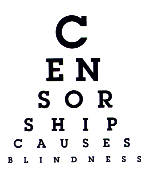Bombs Disguised As "Humanitarian" Gifts
NATO's Paradoxical Mission in Libya
July 29, 2011
NATO's "Operation Unified Protector" is purportedly designed to protect Libyan civilians when in fact, this is merely a fig leaf to remove Gaddafi from power. Within 48 hours, the "protests" against Moammar Gaddafi turned violent and Libyan government forces were confronted with armed rebels. Civilians were never targeted by the Libyan regime to begin with. The civilian casualty rate for Misurata, for example, was less than three percent in the first two months of the conflict. This figure pales in comparison to the conflicts in Gaza or Fallujah where to this day civilians continue to suffer from the toxic legacy of depleted uranium from the brutal assault by American force and where the casualty rate exceeds those reported by the survivors of the atomic bombs in Hiroshima and Nagasaki.
NATO continues to claim that Gaddafi poses a threat to civilians and by intervening they have thwarted another genocide on the scale of Rwanda or the holocaust. Gaddafi's history belies this claim. While Eastern Libya was economically neglected and the Berber minority was denied their identity, language, and cultural rights, there was no systematic policy of discrimination against them. Libyan women enjoyed equal rights, were economically empowered, and their social status was enhanced to a greater degree than in the neighboring states. The sizable foreign migrant population were entitled to the same benefits as Libyan citizens. The historically disadvantaged black minority was embraced by Gaddafi in his pan-African aspirations, much to the chagrin of many locals who continue to harbor prejudices and resentments. In fact, this is one of the fault lines of this conflict. The rebels would prefer to orient themselves toward the West and the Arab world.NATO's "Operation Unified Protector" is purportedly designed to protect Libyan civilians when in fact, this is merely a fig leaf to remove Gaddafi from power. Within 48 hours, the "protests" against Moammar Gaddafi turned violent and Libyan government forces were confronted with armed rebels. Civilians were never targeted by the Libyan regime to begin with. The civilian casualty rate for Misurata, for example, was less than three percent in the first two months of the conflict. This figure pales in comparison to the conflicts in Gaza or Fallujah where to this day civilians continue to suffer from the toxic legacy of depleted uranium from the brutal assault by American force and where the casualty rate exceeds those reported by the survivors of the atomic bombs in Hiroshima and Nagasaki.
While Gaddafi's rule has not been without its flaws, the living standards of Libyans have improved considerably since he took power. Libyans enjoyed the highest human development index and the highest gross domestic product (GDP) at purchasing power parity (PPP) per capita in all of Africa. The government provided an extensive social welfare system such as inexpensive housing, subsidized food, free medical care and education as well as unemployment insurance. Libya was no paradise, as in other countries in the region, youth unemployment was high and political freedom was limited. In spite of all its flaws, however, the Libyan government ensured that its citizens partook in the oil wealth and fewer people lived below the poverty line than in the Netherlands. Moreover, Libya was not a classic police state. It had alower incarceration rate than the US, Czech Republic or New Zealand. Libya was on track to reaching the Millenium Development Goals (MDGs) by the year 2015.
When the conflict broke out, unarmed civilians in the affected towns saw their homes damaged and services disrupted. While there were civilian casualties, they were limited. The conflict was localized. Civilians in large parts of the country were completely unaffected by the turmoil. The politically disparate, poorly armed and disorganized rebels were about to be defeated and the country was about to return to a state of normalcy. It is reasonable to assume that armed rebels would have been persecuted and that their treatment would have been harsh. Political exile would have been the best option for many of them. However, unarmed civilians in the hot-spots of the revolt were never threatened physically or verbally by the government. The threats were specifically directed at the rebels ("rats") and not the population at large. At the same time, the government also issued offers of amnesty to those willing to lay down their arms so that their message has not been continuously bellicose toward the rebels.
Paradoxically, what was conceived as a "humanitarian" intervention to "protect civilians" (i.e. "rebels") has exponentially increased the suffering of the Libyan people as the conflict spread throughout Libya and was no longer contained. Economic activity has ground to a halt, infrastructure worth billions of dollars has been destroyed, one-sixth of the population has been displaced, children in large parts of the country are no longer attending school, and people are increasingly traumatized by the bombings. A humanitarian crisis has erupted with fuel shortages and a lack of food and medical supplies looming. The population of Western and Southern Libya is being held hostage and collectively punished as NATO attempts to bomb Gaddafi into submission and throttle his access to fuel supplies, cash, and resources. Yet the banking system is still working in government-held areas. Salaries and pensions continue to be paid. Food supplies have not yet run short and are still subsidized.
read on...
===========================================
New moves to curb criticism of Israel in US and Canada
Kristin Szremski
EI, July 29, 2011 The Canadian Parliamentary Coalition to Combat Anti-Semitism (CPCCA) issued a report in early July recommending the adoption of strict new standards defining anti-Semitism and the types of speech and campus activities that would violate them. Its report urged the Canadian government to adopt the European Union Monitoring Centre on Racism and Xenophobia’s definition of anti-Semitism ("Report on the Inquiry Panel," 7 July 2011 [PDF]). That definition suggests that any questioning of whether Israel has the right to exist as a state that privileges Jews over people of other religions or ethnic backgrounds amounts to anti-Semitism. Though the Canadian group is not linked to the Ottawa government, it has 22 parliamentarians as members. Activities it deems as anti-Semitic and, therefore, calls to be banned, include events such as the Israeli Apartheid Week that was founded in Toronto and now takes place on college campuses internationally every March. The Canadian report is just the latest attempt at stifling public discourse about Israel. Free speech and the unimpeded exchange of ideas are also under attack on America’s college campuses. Pro-Israel supporters have targeted federal funding for academic institutions, including support for research and academic conferences, under the pretext that criticism of Israel is "hate speech." read on... ================================================ Disasters How Do We Prepare? By Marie D. Jones / NEW DAWN MAGAZINE 7-28-11
|




No comments:
Post a Comment